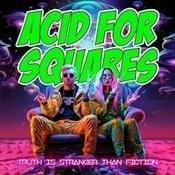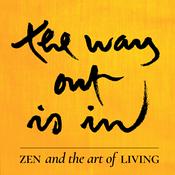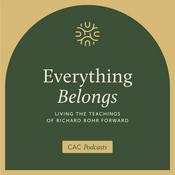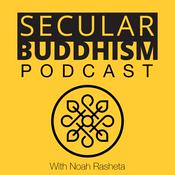24 episodes

Healing Disturbing Emotions Meditation 1
28/2/2022 | 30 mins.
It is important to see the destructive nature of emotions, how they harm the mind and body, in this way we become motivated to work on and transform the emotions. According to Buddhism, we need to deal with disturbing emotions (delusions) with a skillful "middle way", as opposed to the two unskilful ways, the expression or suppression of emotions. Expressing emotion (acting it out with family or friends) creates a situation that you need to fix with those you have acted out your emotion on. When you suppress emotions you are pushing negative emotions down which can cause physiological problems. The Buddhist way of dealing with emotions follows the middle way, by either first acknowledging the emotions when they arise in the mind to avoid suppressing them or by working on them within the mind through applying antidotes.

The Nobel Truth Of Suffering
05/2/2022 | 1h 28 mins.
CONTEMPLATING SUFFERING When you create suffering potential within the mind, that potential can be purified, if it's not purified suffering will be experienced. If it's experienced in this life and becomes habitual behavior at the end of life the suffering will appear strongly in the mind and will be probable propelling karma into the hell realms. Conversely, if you are very kind during your life then kindness would be the propelling karma into heavenly realms. WHAT ARE HELL REALMS? Hell is an experience of the mind, there. A collective of beings who have created similar karma to suffer. One who has created the potential to suffer needs a being who will bring about suffering, so it is the mind that creates the torture and a collective of beings who have created a similarity of karma suffer together believing that it is indeed a realm that exists, but when we analyse it we understand that it is a figment of the mind, not truly existing from the perspective of emptiness but seemingly existing (in such a way as a rainbow does). TRANSFORMING SUFFERING How we respond to suffering depends on whether we mentally rise up or whether we go down. Do we go into depression because of problems that we encounter, or can we use suffering positively as a way of realising that it is indeed true that samsara is suffering, that no matter where we are in samsara, whether in god realms, human realms or hell realms, enhancing the determination to get out of samsara through changing ourselves, mentally transforming suffering into a positive response to the world (samsara) through the act of renunciation of the causes of suffering.

Understanding The Twelve Links Of Dependant Origination - Part 2
11/7/2021 | 1h 58 mins.
DHARMA OR DRAMA? Building up our dharna practice Testing our practice Rejoicing in our dharma progress Appreciation of emptiness teachings SAMSARA TO NIRVANA Comprehending our ignorance Getting in touch with our suffering The antidote to suffering is wisdom Comprehending the emptiness of suffering THE SUPREME ANTIDOTE TO SUFFERING Comprehending dependent origination is the supreme antidote to the sensation of suffering that changes the way that we respond to samsara, "Dependent arising has a profound implication, it connotates that if one is not satisfied with the mere appearance of an object, but seeks through extended analysis the actual object to which the imputation is affixed, one does not come up with anything among or separate from the basis of imputation of that object that can be said to be the object" - Dalai Lama. ANALYSING THE "I" We say "I", as if the "I" is the owner/controller of the situation and body because we use the label "I" over and over, so in end, we start to believe the "I" really exists unless we analyse the existence of "I", if we analyse the existence of "I" we can't find it and if we don't analyse it we think the "I" really exists.

The 12 Links of Dependent Arising
06/6/2021 | 29 mins.
The 12 Links of Dependent Arising Ignorance Compositional action Consciousness Name and form The 6 sources Contact Feeling Craving Grasping Existence Rebirth Ageing and death

Meditation By Venerable Namgyel
29/5/2021 | 16 mins.
RENUNCIATION Renunciation isn't related to the appearance of your surroundings. it is the self-cherishing state of mind that diminishes as your heart opens when walking on the Bodhisattva path accompanied by a deep understanding that all sentient beings deserve our compassion. THE SUFFERING OF PAIN The experience of unpleasant feelings, the manifest suffering which is easy to identify, such as pain in the body and emotional suffering. We need to be aware of the pain and suffering within samsara. THE SUFFERING OF CHANGE Suffering and its alleviation (happiness), both have the nature of impermanence. We attach to happiness which we want to be permanent, if we don't analyse the change between suffering and happiness, we don't accept that this is the way of samsara and we don't proceed to comprehend the concept of renunciation. ALL-PERVASIVE SUFFERING To comprehend all-pervasive suffering it is best to meditate on the contaminated aggregates as discussed in The Heart Sutra. When we look at forms we label them without understanding their nature, for example without appreciating the flower"ness" of a flower. We then need to do this with the body bringing us to the comprehension of the emptiness of being, and that karma caused by self-delusion is responsible for the all-pervasive nature of suffering. When we understand this we will naturally arrive at renunciation.
More Religion & Spirituality podcasts
Trending Religion & Spirituality podcasts
About Venerable Namgyel's Online Sangha
Listen to Venerable Namgyel's Online Sangha, Next Level Soul Podcast with Alex Ferrari and many other podcasts from around the world with the radio.net app

Get the free radio.net app
- Stations and podcasts to bookmark
- Stream via Wi-Fi or Bluetooth
- Supports Carplay & Android Auto
- Many other app features
Get the free radio.net app
- Stations and podcasts to bookmark
- Stream via Wi-Fi or Bluetooth
- Supports Carplay & Android Auto
- Many other app features


Venerable Namgyel's Online Sangha
download the app,
start listening.




































